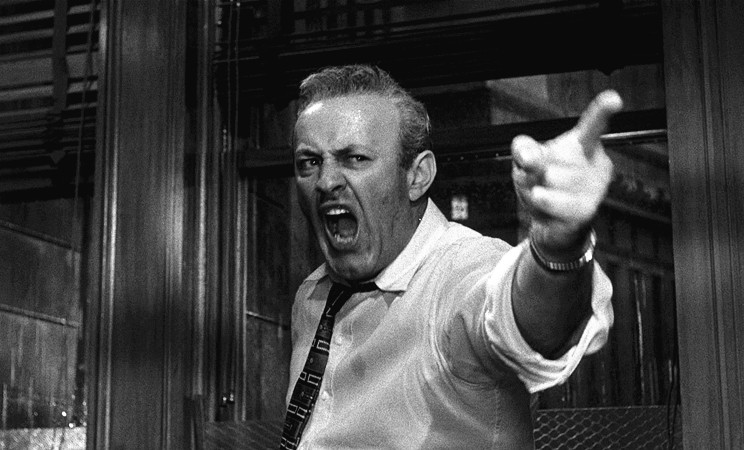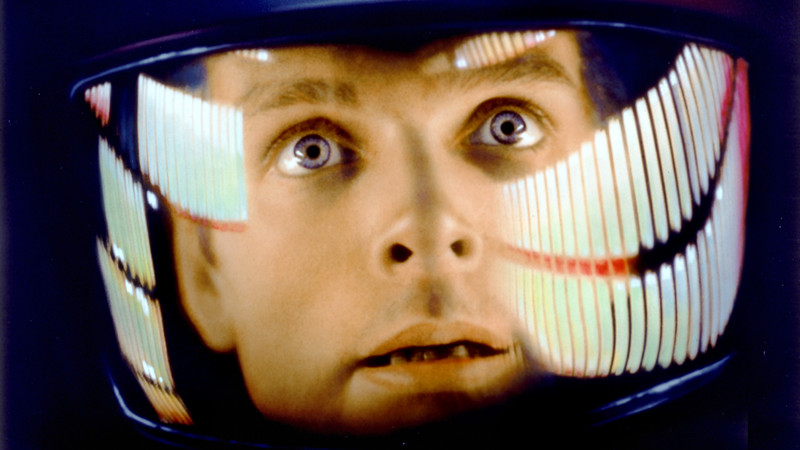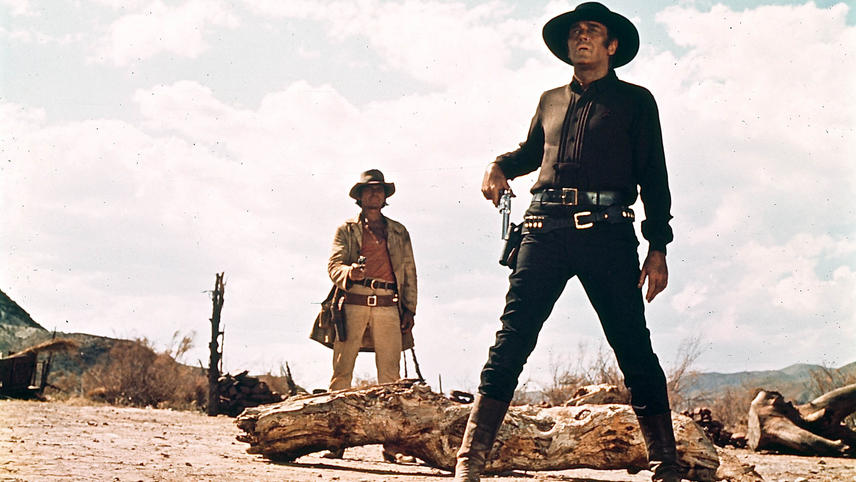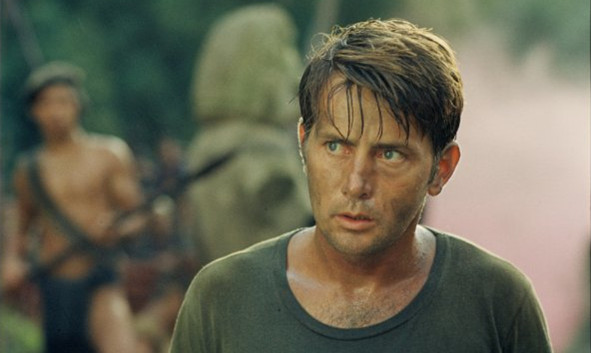
The problem with film critics constantly pushing towards canonization is that, regardless of which criteria one ends up using, any definitive list that tries to consolidate the “Greatest Movies of All Time’ represents only the tip of the iceberg in more than a century’s worth of deserving titles. So we’ll be the first to admit that the following collection of movies should be taken as being no more or less objective as, say, the latest Sight and Sound critics’ poll topped by Chantal Akerman’s “Jeanne Dielman, 23, quai du Commerce, 1080 Bruxelles”.
Of course, we’re ready to go to the mattresses for any of the titles listed in chronological order down below, but to shake things up a little, we decided to limit ourselves to just one film per director and actively try to honor as many genres, eras, and filmmaking styles as possible. Plenty of other five-star masterpieces we can’t find a single flaw with have been left off, but to make up for it we’ve included an extensive list of honorable mentions that could just as easily have found their way on here. Read on and let us know what we’ve missed in the comments.
1. 12 Angry Men (1957)

By far one of the most assured directing debuts and beloved courtroom dramas ever as well as a timeless case study in blocking and clockwork plotting, “12 Angry Men” is a stone-cold masterpiece that hasn’t aged one bit in the past sixty-odd years. The film barely stretches past the 90-minute mark, but then-first-time director Sidney Lumet still managed to lift the mask on the entire American justice system and expose bone-deep prejudices without an ounce of narrative fat.
As far as premises go, few are as straightforward and pared-back as this: The life of an 18-year-old Puerto Rican boy accused of stabbing his father lies in the balance as a dozen white male jurors gather inside a claustrophobic jury room at a New York courthouse on the hottest day of the year to talk things over and reach a verdict. As simmering tensions rise to a boil, Henry Fonda’s calm voice of reason challenges preconceived notions and implores his fellow jurors to reconsider their biases and thoroughly examine the facts before rushing into any conclusions.
Every performance hits its mark and every little scene and character interaction serves a thematic purpose and moves the plot and momentum forward (something that, unfortunately, can’t be said for its bloated 1997 remake). If you’re looking to introduce your partner or friend to classic Hollywood cinema, this is as good a starting point as any.
2. Harakiri (1962)

When it comes to Japanese samurai flicks, Akira Kurosawa is naturally the first name that springs to mind. And though you wouldn’t be wrong to point out that his influence undeniably looms over the entire subgenre, today we’re casting a wider net to make a bid for Masaki Kobayashi’s subversive and confrontational Edo-era period piece. Like the yang to Seven Samurai’s yin, where Kurosawa’s touchstone masterpiece glorified the moral codes of honor and heroic values in feudal Japan, “Harakiri” peels off the layers and debunks them with equal conviction and gusto.
There’s far more than meets the eye in this slippery cautionary tale about a penniless, masterless samurai (the legendary Tatsuya Nakadai) ruthlessly abandoned and left out to dry by his previous employer, who waltzes through his former lord’s castle unannounced with the intention to commit ritual suicide in the courtyard in front of all his loyal retainers. New information comes to light as the film bounces through time through flashbacks to reveal the full scope of the tragic downfall of an honest man chewed up, spit out, and ultimately betrayed by a corrupting system that thrives on betrayal and perpetuates injustice. So much for the venerable bushido code.
3. 2001: A Space Odyssey (1968)

The enduring appeal of the science fiction genre is evident: At its best, these films thrill and inspire us and captivate our imagination with evocative visions of the distant future that reflect on modern-day issues and ask deep questions about the human condition.
Where are we headed? What is humanity’s place in the cosmos? More than a half a century after Stanley Kubrick’s “2001: A Space Odyssey” came along and changed cinema forever, we’re still wrestling with these eternal questions. No disrespect to “Star Wars”, “Blade Runner”, or “Alien”, but we’ll go with Kubrick’s monolithic opus — which not only spans millennia but, against all odds, maps a coherent path through human evolution — as the measuring stick to which all subsequent space movies should be judged.
From the Dawn of Man and spaceship-docking scenes to the Star Gate sequence, despite huge advancements in CGI, it’s safe to say that no modern sci-fi offering has come even remotely close to replicating its sense of wonder or epic scale.
4. Once Upon a Time in the West (1968)

Few film genres, if any, are as deeply rooted in American history, iconography, and filmmaking as the Western. Yet, it wasn’t until two Italian guys joined forces and spiced things up during the mid-1960s, that the genre soared to heights of visual and storytelling brilliance that have rarely been matched before or since.
From the Dollars trilogy to “Once Upon a Time in America”, every collaboration between Sergio Leone and Ennio Morricone resulted in nothing less than a flat-out masterpiece. But for us, the pinnacle and central reference point for their creative marriage has to be this 1968 spaghetti western — a flawless, towering achievement that simply couldn’t exist without either one of them.
Few moments in cinema history can hold a candle to that unforgettable, stirring opening showdown at a deserted train station. It’s a self-contained directing masterclass in itself that hooks you up from the start and tells you all you need to know about the key players, including Charles Bronson’s enigmatic gunslinger Harmonica, with little to no dialogue lines. You’d think that the rest of the film couldn’t possibly live up to that 13-minute sustained adrenaline rush, and yet Leone keeps you locked in over the next two hours and change without hitting a single dull note. If movies ever get any better than this, please let us know.
5. Apocalypse Now (1979)

Francis Ford Coppola never turned in a movie that he could resist tinkering with down the road. Sure, it’s easy to understand the impulse to try to salvage flawed but interesting misfires like, say, “The Godfather: Part III” or “One from the Heart”. But it’s both funny and mildly infuriating to watch a revered titan of modern American cinema endlessly tampering with his closest brush with perfection, when there’s a solid argument to be made that the director hit the bullseye right out of the gate.
In all likelihood, we’ll never settle on a definitive go-to version of “Apocalypse Now”, Coppola’s surreal descent into the horrors of the Vietnam War starring Martin Sheen as a U.S. Army Captain journeying into the heart of the Cambodian jungle on the hunt for the rogue and megalomaniac Colonel Kurtz (Marlon Brando). That said, the 1979 Palme d’Or-winning film is virtually flawless in any of its alternative iterations floating around out there (We’re partial to the theatrical cut, though the jury is still out on the French plantation segment which, at least in this writer’s opinion, does bring things to a halt rather abruptly).